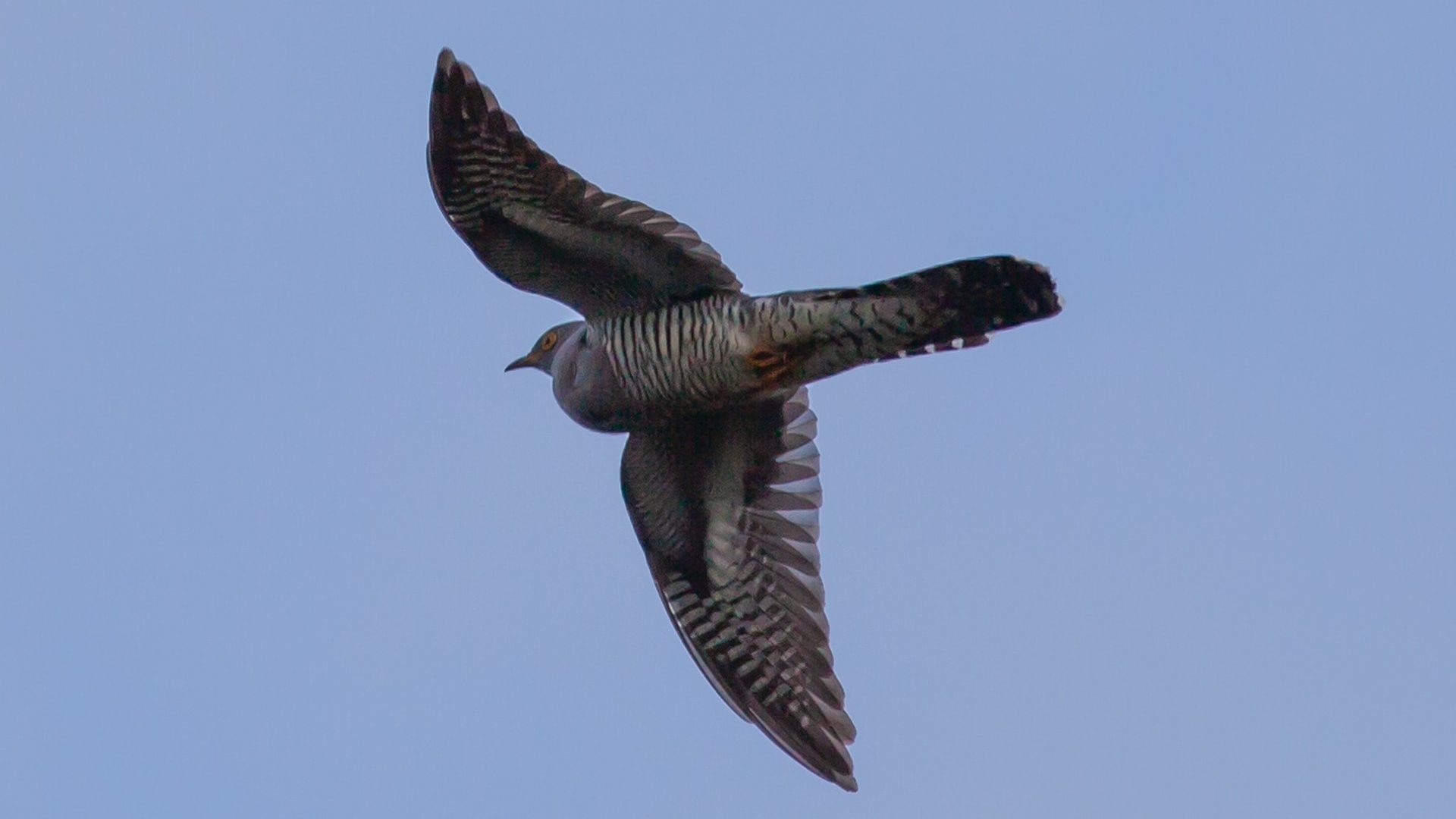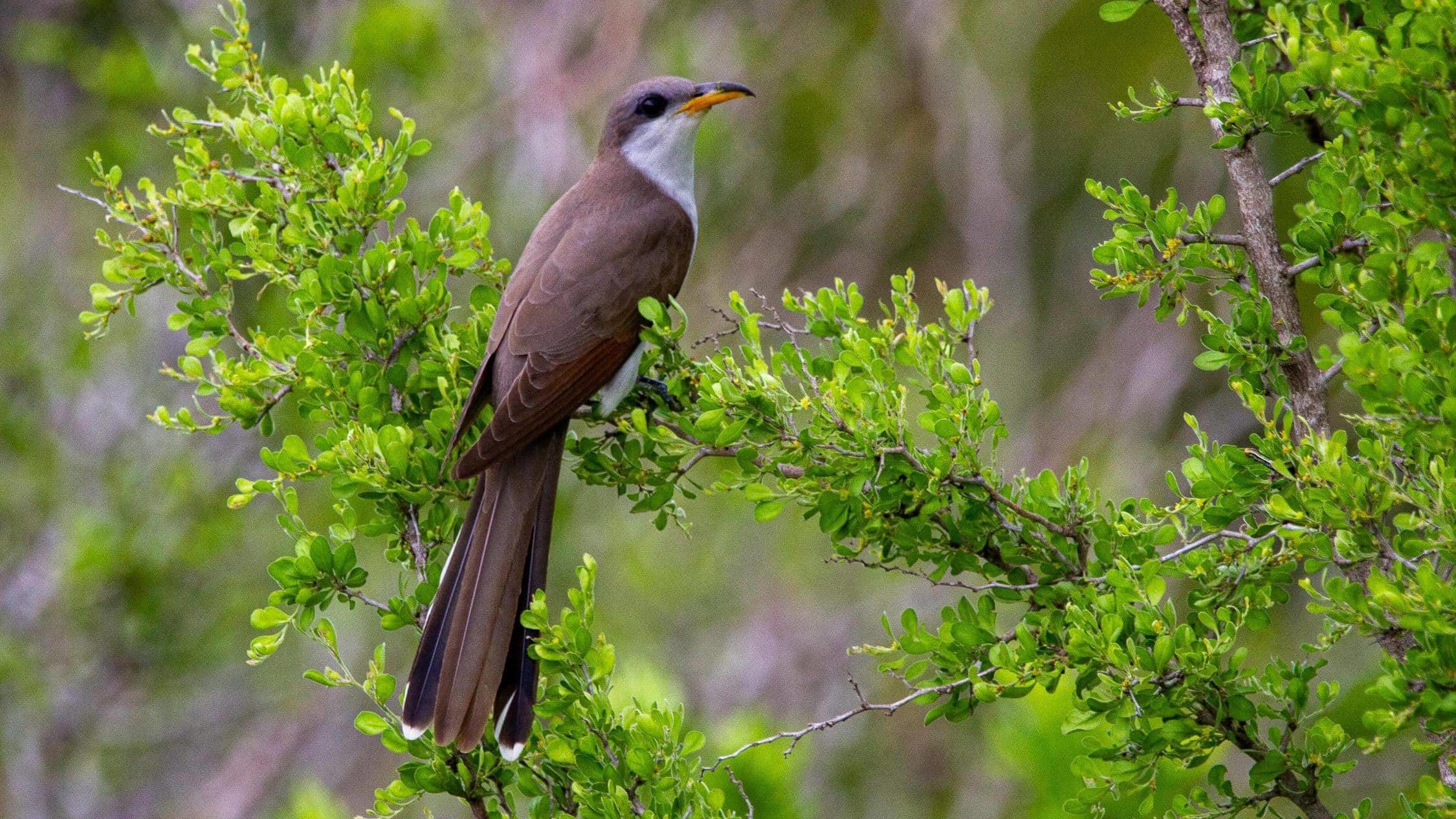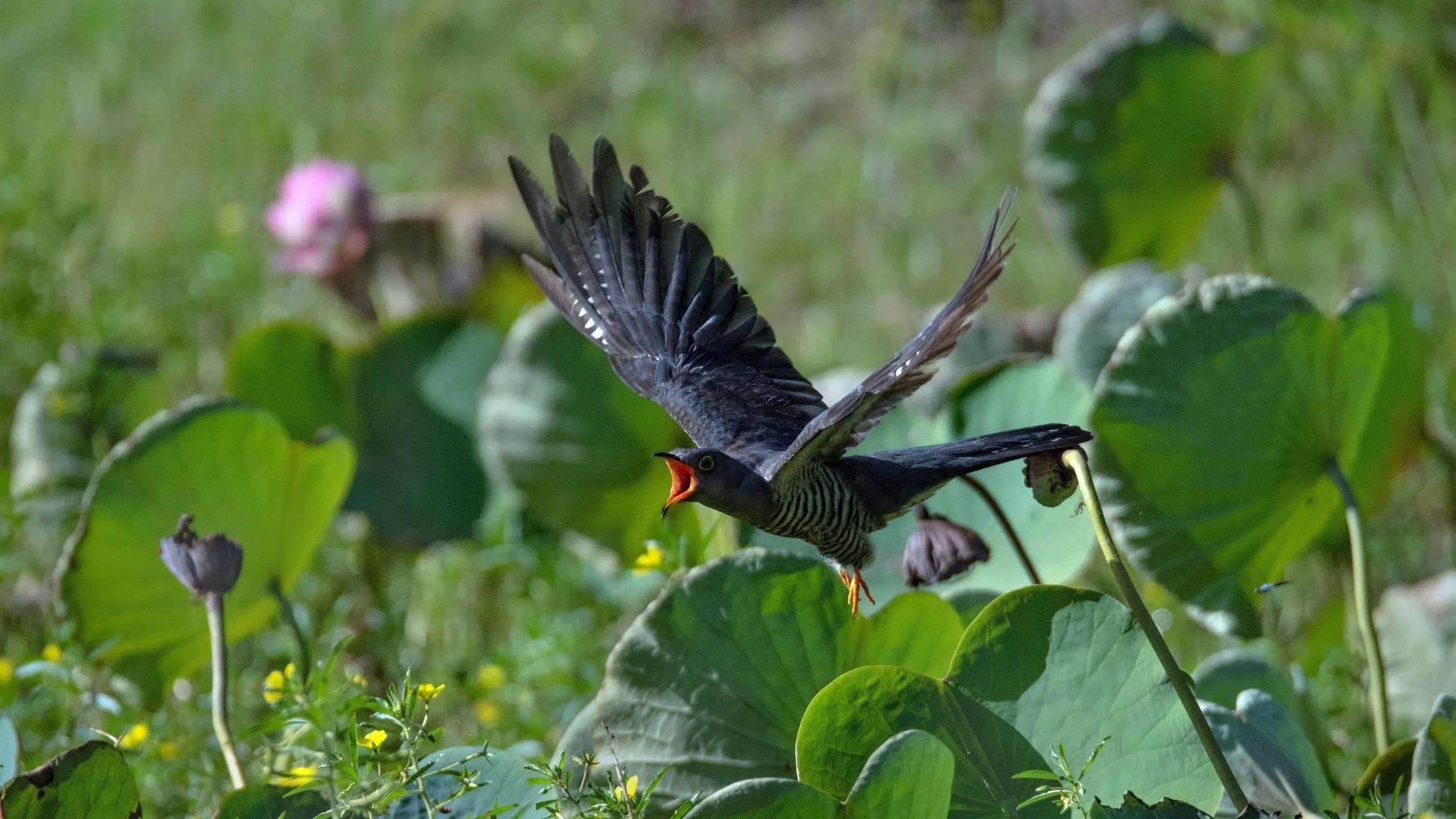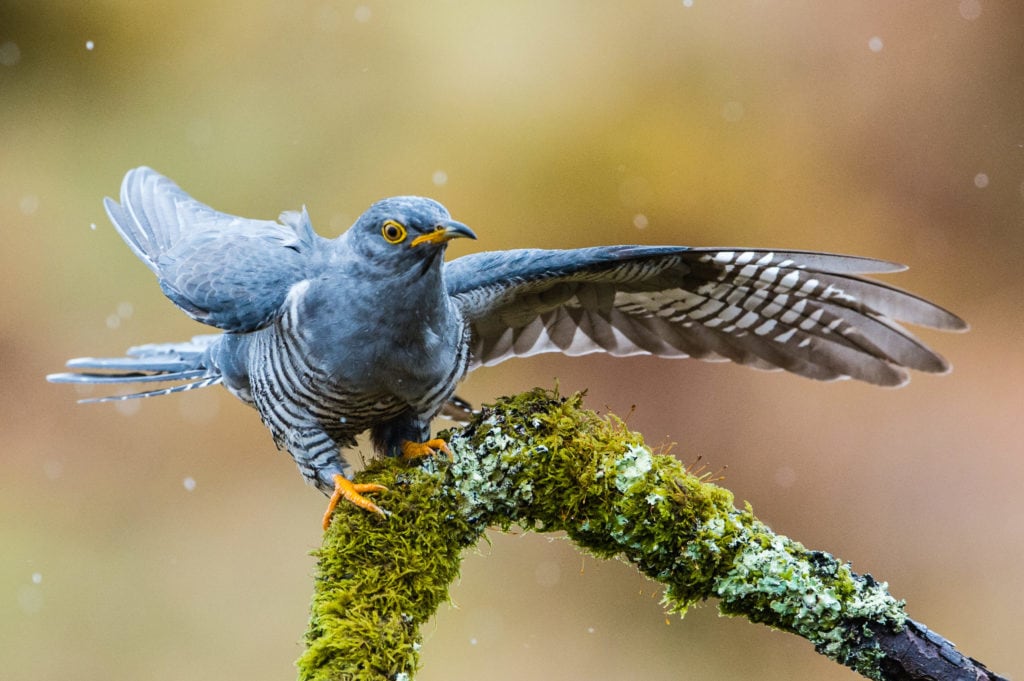Cuckoos are a widespread family of birds that are present on every continent except Antarctica. The cuckoo family includes 127 distinct species of cuckoos. (1) They are usually slender tree dwelling birds. However, the cuckoo family notably includes the ground dwelling roadrunner. (2) Cuckoos feature prominently in many idioms and in the folkloric traditions of several cultures. They are particularly well known for their distinctive repertoire of calls and the parasitic nesting behaviors that some cuckoo species exhibit. (3)
Cuckoos are often associated with insanity, foolishness, or nonsense. Additionally, the word “cuckoldry” can trace its origin back to the cuckoo bird. They have at different times and in different cultures been associated with springtime, the passage of time itself, unrequited love, and a few different deities.
So, what does it mean to have a special connection to the cuckoo and what can we learn from these diverse and fascinating animals? The range of meanings for cuckoos varies across cultures. In many cultures, these charming birds can be a potent guiding force in the lives of those that treasure them.
Cuckoo Symbolism and Meaning
Idiomatically, it is very common for cuckoos to be associated with insanity. People often use the word “cuckoo” to describe a crazy person. This may have originated with the term “cloud cuckoo land” from the play “The Birds” by the ancient Greek playwright Aristophanes. (4) Cloud cuckoo land is similar to the idiom “Lalaland.” Both refer to a naive state of foolishness or misplaced idealism.
Cuckoos feature prominently in the aptly named cuckoo clock. These are usually intricately designed wall clocks that feature a small figure of a cuckoo bird which calls to chime the hour. Cuckoo clocks may not be quite so popular now, but they were once common and cherished household furniture. Cuckoo clocks use cuckoo birds to mark the passage of time, and thus cuckoo birds are often associated with time and timekeeping.
Additionally, the word “cuckold,” referring to an individual who has an adulterous spouse, comes from cuckoos. (5) The tendency of certain cuckoo species to engage in brood parasitism is the origin of this term. Brood parasitism is the reproductive behavior in which a female bird lays her egg in the nest of another species. This host bird will often raise the invading egg as its own. Of the 127 species of birds in the cuckoo family, about 50 are brood parasites. Because of this, deception and manipulation are commonly associated with cuckoos. The idiom “cuckoo’s egg” refers to this behavior.
Cuckoo Native American Symbolism
For the Iroquois, the cuckoo is associated with laziness. This is a result of the Iroquois observing brood parasitism in cuckoos. This behavior was interpreted as laziness and failed parenting and is used in cautionary tales. (6)
Cuckoo Christianity Symbolism
In Christian traditions, deception and adultery are serious sins. The tendency of some cuckoos to engage in brood parasitism would strongly associate them with deceit. Additionally, the association of cuckoos with cuckoldry furthers their association with sin.
Cuckoo Celtic Symbolism
In the Celtic tradition, cuckoos were considered to have the ability to travel between worlds. Because of this, they were often associated with death and the afterlife. The call of the cuckoo was said to have the power to summon the dead. Additionally, there was a belief that cuckoos had the gift of prophecy and could predict the length of a person’s life. (7)

Cuckoo in Dreams
Encountering a cuckoo in a dream can have many different meanings depending on both the context of the encounter and the species of cuckoo.
Often, dreaming of a cuckoo bird indicates deception or betrayal. This is due to the behavior of brood parasitism. The majority of cuckoos, however, are not actually brood parasites. This can serve as a warning not to misjudge or hastily dismiss someone based on things that they cannot change.
Cuckoos are usually much easier to hear than they are to spot. This shyness can serve as a reminder to come out of one’s comfort zone and try to connect with people.
Dreaming of a roadrunner, a particularly unique and distinctive species of cuckoo, may indicate that you are running from your problems rather than facing them as you should. If you dream of a roadrunner, spend some time examining whether there may be things in your life that are scaring you more than they should.
Because cuckoos can be associated with the passage of time, dreaming of cuckoos may indicate personal growth or milestones. They may also represent anxiety of growing older or wasting time.
Cuckoo Encounters and Omens
Encountering a cuckoo bird can be a very moving experience. Their calls are often hauntingly beautiful and they tend to be elusive and shy. If you encounter a cuckoo bird it may be a reminder to practice self-expression. Encounters with cuckoo birds tell us to get in touch with our creative side and to be vulnerable with others.
An encounter with a brood parasite species of cuckoo bird can be a reminder to look into the balance of our relationships. In some limited cases, parasitic cuckoo birds can have a symbiotic or mutually beneficial relationship with the host birds. (8) Typically, though, brood parasitism is harmful. If you encounter a cuckoo bird it may mean that you should examine your relationships and ensure that they are as “symbiotic” as possible.
Sometimes cuckoo birds are correlated with the onset of springtime. This means that these birds can be associated with rejuvenation, rebirth, and transformation. In some cases, an encounter with a cuckoo bird can signify an upcoming opportunity for personal growth.
Some cultures associate cuckoos with the dead. A visit from a cuckoo may be an attempt at communication from a lost loved one. When the dead appear as birds it is often thought to be because they wish to serve as guiding spirits.
Cuckoo in Mythology & Folklore
Cuckoos are widespread and thus appear in a vast array of mythological and folkloric traditions. Common associations include springtime, weather phenomena, death, and the dead, and fertility.
Native American Mythology:
In Iroquois mythology, there is a story in which a lazy father refuses to hunt for his family. His child cries out in hunger and he strikes the child. When he does this a cuckoo bird appears and the laziness leaves the father. He now wants to hunt and care for his family, but his child is no longer there. His only companion is the cuckoo. This story is a cautionary tale warning parents to care for their children. The cuckoo bird is used in this story because it represents laziness. The parasitic species of cuckoo bird refuse to build a nest or rear their young so they are considered lazy. (9)
Celtic Mythology:
In Celtic mythology, cuckoos are commonly associated with death, rebirth, fertility, and springtime.
Many superstitions associated cuckoos with good or bad luck depending on the circumstances of the encounter. They were often thought to signal oncoming storms as well. (10)
Indian Mythology:
Indian mythology holds the cuckoo bird in special significance. These birds are associated with the onset of the monsoon season, fertility, hope, and the onset of the new year.
Cuckoos are said to be a vehicle of the god Jayakara who is a companion to the god of love. (11)
Additionally, the goddess Sati is said to have spent one thousand years as a cuckoo. (12)
Japanese Mythology:
In Japan, the cuckoo is associated with unrequited love, longing, and the onset of summer. In some traditions, the calling of cuckoos represents the desperate longing that the dead feel to return to their living loved ones. (13) This association with the dead leads cuckoos to appear in Japanese traditions as harbingers of tragedy.
Greek Mythology:
In Greek mythology, cuckoos were associated with Hera, the goddess of marriage. In one story, Zeus woos Hera by appearing to her in the form of a cuckoo bird. (14)
Pliny the Elder wrote of cuckoos having a magical ability to protect from pestilence with their calls. He states that in the area where a cuckoo call is heard the earth can be dug out and used to prevent fleas and pests. (15)
In Aristophanes’ “The Birds,” which is the source of the “cloud cuckoo land” idiom, cuckoos and other birds are described as being older than the gods themselves. (16)

Cuckoo Spirit Animal
The cuckoo spirit animal is largely misunderstood. Although there are plenty of cuckoo birds that are harmful brood parasites, many more cuckoos are shy and harmless. Additionally, it has recently been discovered that in some limited cases cuckoo birds that lay eggs in the nests of other species may actually help the host species’ survival. (17) This is because cuckoo birds excrete a foul substance when threatened which deters predation.
So, if the cuckoo bird is your spirit animal then you may struggle with being judged or misunderstood by those that don’t know you well. People with the cuckoo spirit animal are typically introverted and creative. Like cuckoo birds that call from the trees but don’t often show themselves, people with this spirit animal are usually more comfortable expressing themselves creatively than they are with expressing themselves socially.
Cuckoos are often associated with craziness. For people with the cuckoo spirit animal, this is often a side effect of their struggle with social expression. People with the cuckoo spirit animal have a unique way of seeing the world. Their novel ideas are often difficult to express and can lead to frustration as people fail to understand them.
Cuckoo Totem Animal
The cuckoo totem animal is a creature of balance and reciprocity. Like the parasitic cuckoo species whose eggs can both doom and benefit potential hosts, the cuckoo totem animal has an inherent duality.
Growth, rebirth, transformation, and expression are all traits of the cuckoo totem animal. People with this totem animal tend to have a strong sense of justice. Beware, though, because this sense of justice can lead people with this totem animal to jump to conclusions and persecute others. The cuckoo totem animal is an individualist who often struggles to see things from others’ points of view.
This sense of justice often springs from naïveté. People with the cuckoo totem animal fall prey to “cloud cuckoo land” in that they often see the world in idealistic terms where good and evil are sharply divided. It can be difficult for people with this totem to reconcile this worldview with the complex nature of human relationships.
On the other hand, people with the cuckoo totem animal will risk their own well-being to protect those that they see as deserving. This means that the cuckoo totem animal can be fiercely protective of loved ones.
Cuckoo Power Animal
The cuckoo power animal can grant individuals the ability to seamlessly blend into unfamiliar groups. As the young cuckoo chick fills the role of the host family’s offspring, so do people with cuckoo power animal possess the uncanny ability to intuit what others expect of them and carry it out as naturally as possible. This ability can be used for manipulation or for social success.
People with the cuckoo power animal may struggle with their identity. Knowing and expressing who you truly are is difficult when you spend so much time carrying out the expectations of others. That is why creative expression is often very dear to people with this power animal.

Cuckoo Tattoo Meaning
A cuckoo tattoo can represent as many things as cuckoos themselves. One possible meaning for a cuckoo tattoo is the concept of “found family.” Because cuckoos are sometimes abandoned by their own kind and raised by other birds, a cuckoo tattoo may be meaningful to someone who feels more connection towards the relationships they’ve built rather than their own genetic family.
A cuckoo tattoo may also represent the idea of aging gracefully. Cuckoos are commonly associated with time and timekeeping. Embracing the passage of time can be a powerful and freeing experience worthy of a tattoo.
Conclusion
Although the habit of brood parasitism is reviled by many, cuckoos are a lot more than their bad reputations. In most of the mythological traditions in which cuckoos feature, these birds are positive symbols that bring good luck and hopeful change.
If nothing else, this family of birds can serve as a poignant reminder not to judge too hastily. Even in cases where cuckoos engage in brood parasitism there are instances wherein this behavior is mutually beneficial to the host family. For people who feel connected to cuckoo birds, their many happy meanings vastly outweigh the negative implications of the reproductive habits in which some species of cuckoos engage.
Their elusive nature, haunting calls, and widespread range have allowed cuckoos to make a prominent mark on human culture. It is no surprise, then, that these enigmatic little birds have so much to teach us.
| More Spirit Animal Symbolism to Read About: |
|---|
| Chicken Symbolism & Meaning Flamingo Symbolism & Meaning Blue-footed Booby Symbolism & Meaning Cockatoo Symbolism & Meaning Cassowary Symbolism & Meaning |


Beautiful writing about the powerful cuckoo bird so thank you. Watching and listening to cuckoos in the outer Hebrides!
Thanks for reading! I’m so glad you enjoyed my work!
— Hailey Brophy
Writer @ World Birds